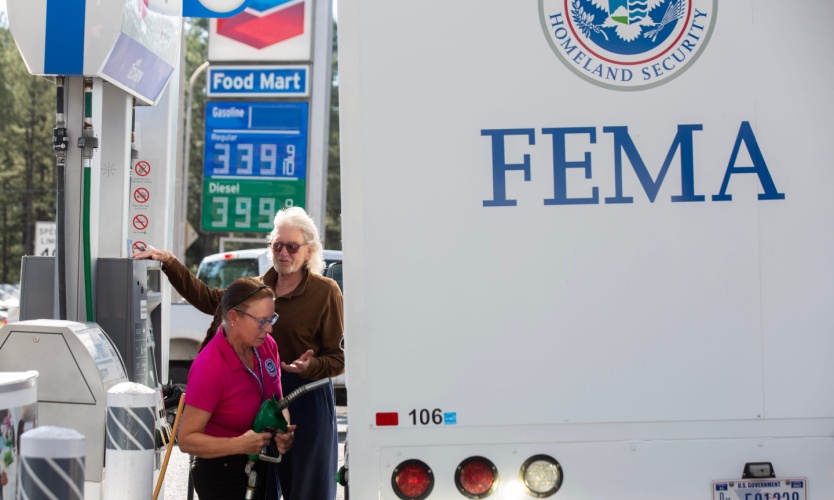Trump’s disaster order could benefit captives, experts say
- October 23, 2025
- Posted by: Web workers
- Category: Workers Comp

HAMILTON, Bermuda — President Donald Trump’s executive order shifting disaster preparedness and resilience responsibilities to the states could present an opportunity for captive insurers, experts said Wednesday at the 2025 Bermuda Captive Conference.
Because state and local governments often lack sufficient resources, private enterprises may need to take on more responsibility, which could affect their insurance placements, Mark Allitt, senior managing director at global CEO advisory firm Teneo, said during a panel session.
The executive order “Achieving Efficiency Through State and Local Preparedness,” issued March 19, comes amid U.S. government budget cuts at the Federal Emergency Management Agency and the National Oceanic and Atmospheric Administration, which the insurance industry depends on for external data.
“If we start to lose the availability of data coming out of some of these organizations, how does the insurance industry, and therefore the captive industry, manage that?” Mr. Allitt said.
The order creates uncertainty but is navigable, and it’s too early to tell what the effects might be, said Dominic Probyn, director, global climate risk advisory at Aon PLC.
Insurers use NOAA data to assess large billion-dollar losses and to price risk, Mr. Probyn said. “It informs a lot of the things that they do,” he said.
“There’s an opportunity here for the private sector and other people who are out creating data to step in,” Mr. Probyn said.
Disaster response approaches vary by state, which could be an opportunity for captives. “It might be one of the risk management tools, risk financing tools that can be adopted at a state level to address some of these changes,” Mr. Probyn said.
Businesses will need to take more control of their own data, said Tanja Korff, Bermuda client services leader and managing director at Marsh Captive Solutions.
It creates an opportunity for the captive industry to highlight its longstanding access to data and analytics, Ms. Korff said.
Captives also can use “excess cash to invest in better data analytics and collection capabilities,” strengthening their position, she said.
Collaboration between captives and the conventional market will help, she said. “The insurance market, specifically here in Bermuda, is known to innovate .… I’m optimistic that we’ll be able to find some solution,” Ms. Korff said.
While insurers will be able to contribute in this area, it’s disappointing that data, a public good, is not being adequately funded, said Fiona Beck, director at Ocean Wilsons Holdings Ltd. and Atlas Arteria Ltd.
It raises the question of how to create alternative models to collect data, Ms. Beck said.
“Perhaps that needs to get funded somewhere else, or by somebody else, and then subsequently priced back to the ultimate users,” she said.



